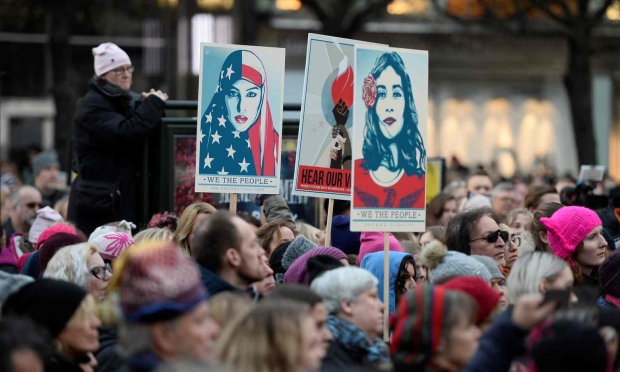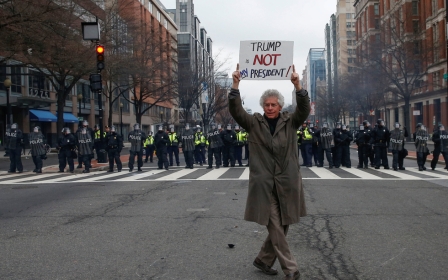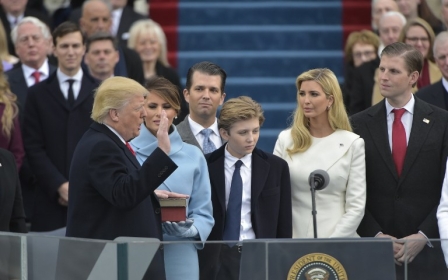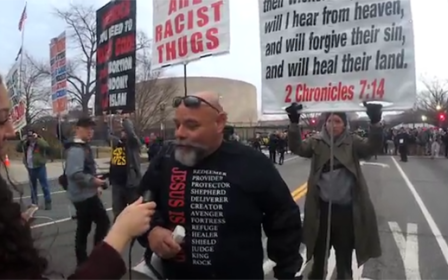Trump makes eradicating 'radical terror groups' his top foreign policy priority
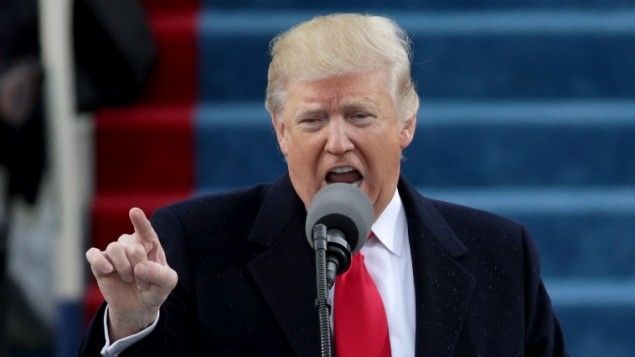
President Donald Trump has made defeating "ISIS and other radical Islamic terror groups" his "highest" foreign policy priority, according to a statement posted on the White House website after his inauguration speech on Friday.
The statement appeared after Republican President Donald Trump in his inauguration speech said he would "unite the civilized world against radical Islamic terrorism, which we will eradicate completely from the face of the earth".
Under the heading "America First Foreign Policy," the White House website said: "Defeating ISIS and other radical Islamic terror groups will be our highest priority.
"To defeat and destroy these groups, we will pursue aggressive joint and coalition military operations when necessary."
It also outlined plans to work with "international partners" to "cut off funding for terrorist groups" and "expand intelligence sharing".
READ: Washington streets reveal US political divisions on inauguration day
President Donald Trump did not outline how his strategy will differ from that of his predecessor Democrat President Barack Obama, who brought together an international alliance to bomb Islamic State group targets in various locations across Syria and Iraq.
Trump's statement, however, did reflect his previous criticism of Obama and his Democratic rival Hillary Clinton for not using the phrase "radical Islamic terror" to describe the Islamic State group and other Islamic militant groups similar to it.
Obama argued that using the term would conflate "murderers" with "the billion Muslims that exist around the world, including in this country, who are peaceful."
READ: Inaugural poster stirs debate among Muslim American women
Clinton said using the phrase would play into the hands of militants who want to portray the United States as being at war with Islam.
'America First' foreign policy
The White House statement used the phrase "America First" to signal a new foreign policy direction under the Trump administration.
The phrase was heavily featured in President Donald Trump's inaugural address in Washington on Friday.
Under the "America First" doctrine the Trump administration intends to pursue a "foreign policy based on American interests [that] will embrace diplomacy."
The White House statement also appeared to nod towards better relations with Russia, something that Trump has said he will pursue.
"We are always happy when old enemies become friends, and when old friends become allies," the statement said.
Trump has rejected criticism that he is too eager to make an ally of Russian President Vladimir Putin.
The White House has also said it intends to disrupt and disable websites used by prosribed groups to spread "propaganda" and recruit new members.
In a separate statement on the White House website, the Trump administration said it intends to develop a "state of the art" missile defense system to protect against attacks from Iran and North Korea.
It did not say whether the system would differ from those already under development, specify the cost or say how it would be financed.
Threat of cyber-attacks
Senior US officials, however, have described cyber-attacks as a greater threat to US national security than terrorism.
This fear was further heightened after the CIA and various other US security agencies accused Russia of hacking to influence the outcome of the US presidential election.
In a recent US Joint Intelligence Review, it stated: "Russian President Vladimir Putin ordered an influence campaign in 2016 aimed at the US presidential election. Russia’s goals were to undermine public faith in the US democratic process, denigrate Secretary Hillary Clinton, and harm her electability and potential presidency."
New MEE newsletter: Jerusalem Dispatch
Sign up to get the latest insights and analysis on Israel-Palestine, alongside Turkey Unpacked and other MEE newsletters
Middle East Eye delivers independent and unrivalled coverage and analysis of the Middle East, North Africa and beyond. To learn more about republishing this content and the associated fees, please fill out this form. More about MEE can be found here.


